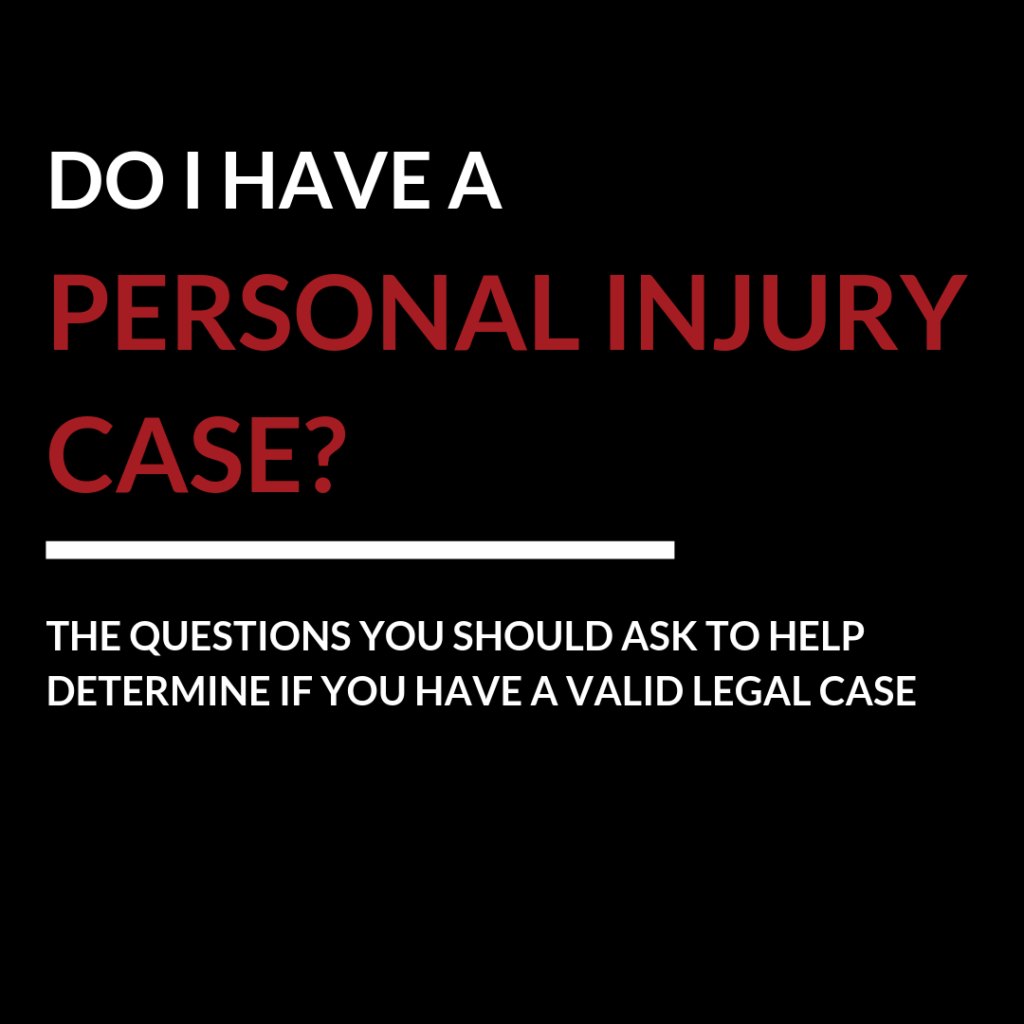Do I Have a Personal Injury Case?
Posted in Our Blog on March 1, 2019
Personal injury law is the branch of civil law pertaining to injuries sustained by negligence. In a personal injury case, a plaintiff must have suffered a personal injury such as a physical injury to the body or psychological injury to the emotions or mind. Personal injuries may be physical or psychological in nature, but the root concept surrounding personal injury lawsuits is negligence, or one party’s failure to use reasonable care in a given situation.
If another person or party injured you in some way or caused economic harm through negligence, you may have grounds for a personal injury lawsuit to recover your damages. A Metairie personal injury lawyer can provide more specific information that pertains to an individual case, but it is a good idea to have some working knowledge of how a personal injury lawsuit works and what to expect from one.

Proving Negligence in a Personal Injury Lawsuit
If a plaintiff wishes to secure compensation with a personal injury claim, he or she must have suffered some type of measurable harm, verified psychological damage, tangible injury, or economic loss due to the actions of another party. The first step in proving negligence is to establish the at-fault party’s duty of care. For example, drivers have a duty of care to follow traffic signals and drive safely. A driver who speeds through a red light would be in violation of his or her duty of care.
Once you establish another party owed a duty of care in the given situation, you must assess how the other party breached this duty of care. Did another driver commit a moving violation and hit your vehicle? Was a daycare supervisor distracted and allowed your child to suffer an injury while at daycare? These are common examples of breached duties of care.
Collecting Compensation for a Personal Injury Claim
Anyone considering a personal injury lawsuit must have suffered damage of some kind to qualify for a lawsuit. If there was no harm, no grounds for a claim exist, even if the other party was negligent. When a plaintiff has established another party owed a duty of care but breached it in some way, the next step is to prove the full extent of the plaintiff’s damages.
A personal injury lawsuit can yield compensation for all damages resulting from a defendant’s negligence. Theses damages can include both economic damages for measurable losses and non-economic damages for intangible losses such as pain and suffering or loss of consortium after the death of a loved one. Economic damages are relatively straightforward and easy to prove; you and your attorney must simply provide the financial documentation required to support your claims, such as hospital bills, invoices for specialist treatment, and receipts from other expenses related to your injury.
The final element of securing compensation for your damages is proving a link between a defendant’s breach of duty and your damages. Essentially, the plaintiff’s attorney must prove that the plaintiff’s damages only occurred due to the defendant’s negligence or would not have occurred but for the defendant’s negligence. For example, if a plaintiff in a car accident lawsuit claims he suffered a back injury as a result of the defendant’s negligence, he and his attorney must prove the back problem was not a preexisting condition and show evidence the victim sought treatment for back pain and related issues following the accident in question.
Consult a Personal Injury Attorney
You may have grounds for legal action and not realize it, or you may think you have a strong case only to discover your claim is not as strong as you originally thought. Consult a personal injury attorney if you are curious as to whether a recent injury or accident qualifies for legal action. Many personal injury attorneys offer free or low-cost consultations to potential clients, so consider taking advantage of one of these offers and ask an attorney whether you have grounds for a personal injury lawsuit.